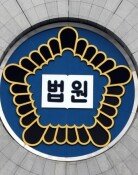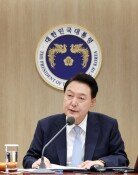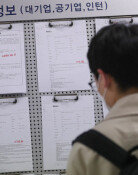Controversies over translation of inter-Korean summit declaration
Controversies over translation of inter-Korean summit declaration
Posted September. 13, 2018 07:50,
Updated September. 13, 2018 08:00
It has turned out that the English translation of the Panmunjom Declaration that the two Koreas recently submitted to the United Nations has a discrepancy with the existing version translated by South Korea’s presidential office Cheong Wa Dae. While the presidential office’s translation which was released immediately after the April 27 inter-Korean summit, says that the two Koreas “agreed to actively pursue trilateral meetings involving the two Koreas and the United States, or quadrilateral meetings involving the two Koreas, the United States and China with a view to declaring an end to the War,” the U.N. version reads that the two Koreas “agreed to declare the end of war this year.” The South Korean government said the Cheong Wa Dae version was an unofficial draft, while the U.N. version is an official translation, which is faithful to the original vernacular text.
The controversial sentence is the third clause of Article 3 of the Panmunjom Declaration. The vernacular text, includes declaring an end of the war, converting the armistice agreement to a peace agreement, and seeking to hold the trilateral or quadrilateral meetings for the establishment of a peace regime this year without even using commas. No government official could offer a clear answer to questions over who will do them and when.
Now that there are controversies over the English translation of the joint declaration four months and a half later, the South Korean government is claiming that the U.N. version is the correct one that reads, “During this year that marks the 65th anniversary of the Armistice, South and North Korea agreed to actively pursue trilateral meetings involving the two Koreas and the United States, or quadrilateral meetings involving the two Koreas, the United States and China with a view to declaring an end to the war, turning the armistice into a peace treaty, and establishing a permanent and solid peace regime.” However, such an explanation spawns bigger controversies. What the government says is that Seoul and Pyongyang agreed to declare the Korean War’s end between the two. However, this raises the question if the two sides agreed on an end-of-war declaration that does not include the United States. It was Seoul’s Unification Ministry that said right after the inter-Korean summit that it would take more than the two Koreas to declare the Korean War’s end.
Moreover, the version submitted to the U.N. is closer to the translation disclosed by North Korea’s official Korea Central New Agency. While creating a joint English translation, Seoul ended up siding with Pyongyang’s position of demanding an end-of-war declaration prior to its nuclear reporting. The fact that the two sides included the vague language into the agreement with the intention of pursuing the declaration depending on progress was problematic in the first place. In addition, it is outrageous that the version disclosed to the international community in order to demonstrate inter-Korean cooperation has cause controversies again.
Requesting a parliamentary ratification of the Panmunjom Declaration, Cheong Wa Dae has set aside 471.2 billion won (417.5 million dollars) in budget to implement the declaration. The amount is not the entire expenses but just for 2019. The presidential office failed to mention various think tanks’ projected expenses of billions or tens of billions of dollars in the long term. Still, it is fortunate that Cheong Wa Dae put the issue to public debates while suggesting some of the estimated expenses. If the National Assembly meticulously examines the agreement, it would be revealed if the Panmunjom Declaration deserves a parliamentary ratification.
Headline News
- Israel prepares for retaliation against Iran
- Samsung reclaims top spot, surpassing Apple in smartphone market
- 77% of Koreans in 20s and 30s are 'Kangaroo Tribe' due to job crisis
- KBO referees embroiled in controversy over ABS decision concealment
- Inflation, oil price surge put double shock on global economy







